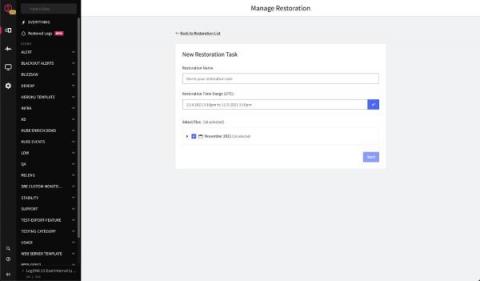Operations | Monitoring | ITSM | DevOps | Cloud
Latest News
Infrastructure Integration Management (i2M) Drives Gains for Complex Enterprises
Sysdig & SUSE: Security & Visibility for SUSE Rancher
Securing a cloud-native environment, such as SUSE Rancher, requires unique considerations. New abstractions like containers, plus the dynamic nature of a Kubernetes orchestrated environment can hamper visibility, especially for legacy tools that aren’t designed for containers and cloud. To help, Sysdig and SUSE have launched a SUSE One Partner Solution Stack designed to not only showcase our joint solution, but also to provide easy ways for you to get started.
Exoprise Digital Experience Monitoring Solution Featured in Redmond Magazine
Microsoft 365 Outage Detection, Crowd-Sourced Analytics, and Advanced Network Telemetry Differentiate the Exoprise Monitoring Solution.
What's New Pandora FMS 758
Let’s check out together the features and improvements related to the new Pandora FMS release: Pandora FMS 758. Remember this is an LTS version, we only have two of them a year, in April and November and they are stable.
Grafana Tempo 1.2 released: New features make monitoring traces 2x more efficient
Grafana Tempo 1.2 has been released! Among other things, we are proud to present both our first version to support search and the most performant version of Tempo ever released. There are also some minor breaking changes so make sure to check those out below. If you want ALL the details you can always check out the v1.2 changelog, but if that’s too much, this post will cover all the big ticket items.
Loki 2.4 is easier to run with a new simplified deployment model
Loki 2.4 is here! It comes with a very long list of cool new features, but there are a couple things I really want to focus on here. Be sure to check out the full release notes and of course the upgrade guide to get all the latest info about upgrading Loki. Also check out our ObservabilityCON 2021 session Why Loki is easier to use and operate than ever before.
Infovista Brings Crowdsourced User Data to Planet 7.5 to Transform 5G Network Planning and Tuning
BSO becomes the fastest provider to B3 connecting international traders to Latin America's largest exchange
Introducing Log Data Restoration on LogDNA
If you’re reading this, I’m pretty sure I don’t need to do much to convince you of the importance of logs. They are the core atomic unit for understanding your environments and provide the insights required to troubleshoot, debug, and more. The fact of the matter is that everyone in your organization needs logs to perform critical functions of their job.











